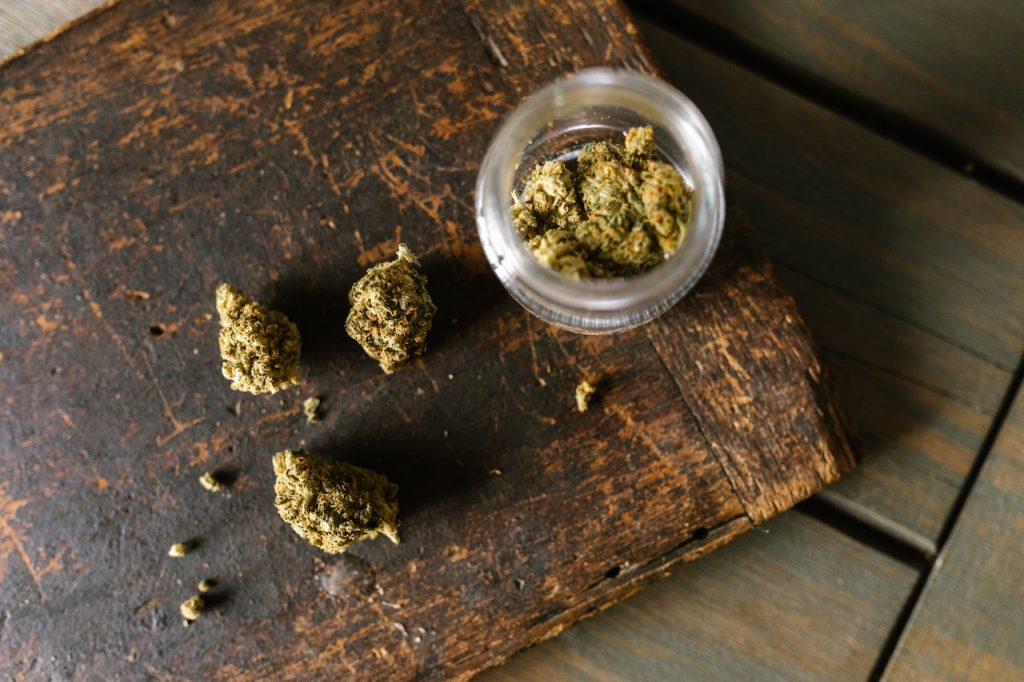According to sales data released by the Oregon Liquor and Cannabis Commission, the price per gram of legal cannabis has fallen to a new low of $4 per gram. That’s a 16% drop from February 2022. Wholesale prices fell even lower, reaching a record low of $550 per pound in December 2022. More recently, those prices have risen to $599 per pound (~450g), but that’s still down 25% from last year.
Oregon Cannabis Prices Plunge to $4 a Gram


The price of legal cannabis in Oregon has dropped to a record low, and may now be the lowest in the entire United States. While cheap cannabis is great news for customers, it’s terrible news for the entire cannabis industry in the state.
To keep up with more cannabis industry updates, download our free cannabis news app.
Oregon Liquor and Cannabis Commission Sales Data
According to sales data released last month by the Oregon Liquor and Cannabis Commission (OLCC), the average price per gram of legal cannabis has fallen to a new low of $4 per gram.
That’s a 16% drop from February 2022. Wholesale prices fell even lower, reaching a record low of $550 per pound ($1.21 per gram) in December 2022. More recently, those prices have risen to $599 per pound (~450g), but that’s still down 25% from last year’s record low.
Oregon Cannabis Industry Faces Difficult Situation
“According to OLCC’s latest annual report, Oregon’s recreational cannabis market is in its most difficult economic situation since the program began in 2016,” OLCC writes. “Low prices for consumers are forcing companies to operate on tight margins and under intense pressure.”
Falling prices are making it difficult to pay growers for the goods they sell. Growers have responded by cutting back on cultivation, but the state still has a huge stockpile of cannabis from the record 2021 and 2022 harvests. That stockpile will continue to affect wholesale prices until it is sold out or rots in warehouses.
“We have a record backlog of retailers owing us,” said Mason Walker, CEO of licensed cannabis grower East Fork Cultivars, to OregonLive. “It’s happening all over the industry. It’s causing a problem throughout the supply chain… It’s not a completely broken market, but it is a challenge.”
Industry in Overproduction Since 2018
The cannabis business in the state of Oregon has been struggling with overproduction issues since 2018, when farmers began growing three times as much cannabis as Oregon residents could consume. In response, regulators imposed stricter rules and even froze cannabis production entirely in 2019.
This helped resolve the situation to some extent, but the emergence of a pandemic in 2020 resulted in an increase in demand for legal cannabis. Producers managed to meet this demand by growing even more cannabis, but sales began to decline again when people began returning to work in 2021.
Legal Interstate Commerce Possible Solution for Oregon
According to state regulators, legal interstate commerce in cannabis would be the best way to solve the overproduction problems. In 2019, the state passed a law that technically allows Oregon cannabis companies to export their products to other states. Unfortunately, federal law still prohibits all trade and shipping of hemp between states, which blocks the state from implementing its export plans. So until the federal law changes, Oregon producers are forced to accept low prices, sell their cannabis on the black market or go out of business altogether.
“Oregon’s recreational cannabis market has proven resilient, but until the legal situation changes, two basic facts will remain the same: supply in the state is unlimited, while demand in the state can only grow to a certain level,” the OLCC report explains.
—
(Featured image by RODNAE Productions via Pexels)
DISCLAIMER: This article was written by a third-party contributor and does not reflect the opinion of Hemp.im, its management, staff, or its associates. Please review our disclaimer for more information.
This article may include forward-looking statements. These forward-looking statements generally are identified by the words “believe,” “project,” “estimate,” “become,” “plan,” “will,” and similar expressions. These forward-looking statements involve known and unknown risks as well as uncertainties, including those discussed in the following cautionary statements and elsewhere in this article and on this site. Although the company may believe that its expectations are based on reasonable assumptions, the actual results that the company may achieve may differ materially from any forward-looking statements, which reflect the opinions of the management of the company only as of the date hereof. Additionally, please make sure to read these important disclosures.
First published in Fakty Konopne, a third-party contributor translated and adapted the article from the original. In case of discrepancy, the original will prevail.
Although we made reasonable efforts to provide accurate translations, some parts may be incorrect. Hemp.im assumes no responsibility for errors, omissions or ambiguities in the translations provided on this website. Any person or entity relying on translated content does so at their own risk. Hemp.im is not responsible for losses caused by such reliance on the accuracy or reliability of translated information. If you wish to report an error or inaccuracy in the translation, we encourage you to contact us.



Comments are closed for this post.